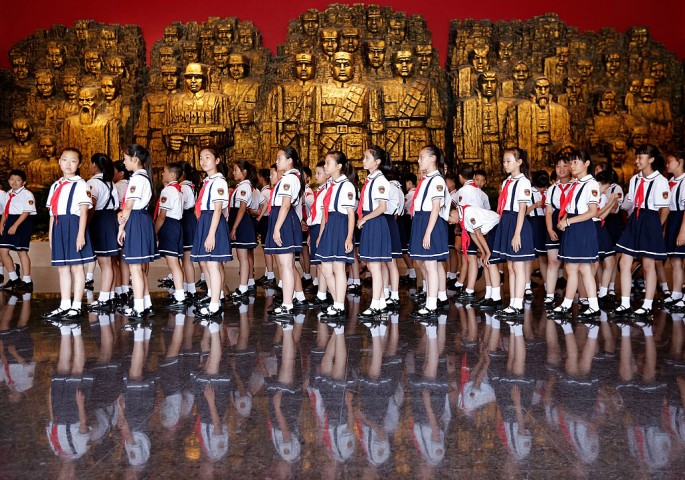With China’s millennial generation playing an increasingly growing role in Chinese society, how does the Chinese government plan to instill patriotism among today’s youth? The answer lies within “red songs,” the Global Times reported.
Pop idols, new media and Internet slang are being harnessed by the government and the Party to spread its national ideology and policies among young Chinese.
It started in late 2013, when a string of patriotic pop songs, animated videos, and micro films went online on social media platforms, promoting government plans and more.
The Central Committee of the China Communist Youth League (CCYL) is also using comics and mobile games, among others, to invite younger people. They have also recruited TFboys to become the organization's ambassadors.
Last June, the TFboys, along with pop singer Han Geng, were invited by CCYL to perform the song "We are the Successors of Communism," which was written in 1961.
"China's millennial generation grew up with Internet," said He Hui, a professor from the School of International Journalism and Communication at Beijing Foreign Studies University, in an interview with Global Times. "Youngsters born after 2000 have an even greater dependence on the Internet. The Party and the central government is hoping to approach and influence these younger generations using their favorite forms such as animation."
These newer and diversified methods of publicity and marketing are answer to President Xi Jinping's call to attract more people back in 2013.
"If China had not been at this stage of development, no one will be interested in these videos," an anonymous spokesperson for On Fuxing Road Studio, which produced animated videos for the government, said in a telephone interview with the Global Times. "If our national leaders hadn't been encouraging these efforts, this won't be possible either."
Still, the government's role in such publicity materials is not obvious, with officials preferring to remain behind the scenes as a means to test the waters.
"Playing down its official background can also make the videos more amiable and acceptable, as opposed to the conventional, one-way Chinese publicity which is often too explicit and political," He said.



























